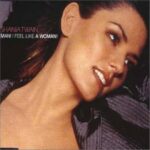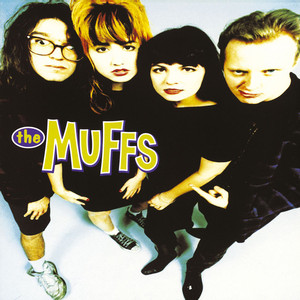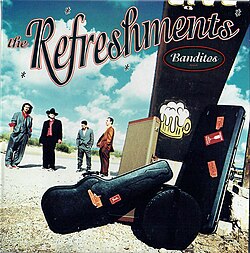 In 1999, Shania Twain released “Man! I Feel Like a Woman!”, a song that would become an anthem of female empowerment and a defining moment in the career of one of country-pop’s most influential artists. Combining catchy hooks, spirited lyrics, and a bold, confident vocal performance, the track captures the exhilaration of personal freedom and self-expression. Twain’s exuberant delivery, paired with the playful and theatrical production, makes the song feel both celebratory and universally relatable. At its core, “Man! I Feel Like a Woman!” is a celebration of femininity, independence, and the joy of embracing one’s identity unapologetically. Its release at the turn of the millennium positioned it as both a product of its time and a timeless statement, appealing to listeners across genres—from country to pop to rock—and helping solidify Shania Twain’s reputation as a crossover superstar. With its memorable hook, iconic music video, and infectious energy, the song continues to resonate with audiences worldwide, embodying the spirit of confidence, liberation, and fun that defines Twain’s artistic persona. Beyond its commercial success, “Man! I Feel Like a Woman!” has become a cultural touchstone, representing a moment when country music intersected with mainstream pop culture to celebrate female empowerment on a global scale.
In 1999, Shania Twain released “Man! I Feel Like a Woman!”, a song that would become an anthem of female empowerment and a defining moment in the career of one of country-pop’s most influential artists. Combining catchy hooks, spirited lyrics, and a bold, confident vocal performance, the track captures the exhilaration of personal freedom and self-expression. Twain’s exuberant delivery, paired with the playful and theatrical production, makes the song feel both celebratory and universally relatable. At its core, “Man! I Feel Like a Woman!” is a celebration of femininity, independence, and the joy of embracing one’s identity unapologetically. Its release at the turn of the millennium positioned it as both a product of its time and a timeless statement, appealing to listeners across genres—from country to pop to rock—and helping solidify Shania Twain’s reputation as a crossover superstar. With its memorable hook, iconic music video, and infectious energy, the song continues to resonate with audiences worldwide, embodying the spirit of confidence, liberation, and fun that defines Twain’s artistic persona. Beyond its commercial success, “Man! I Feel Like a Woman!” has become a cultural touchstone, representing a moment when country music intersected with mainstream pop culture to celebrate female empowerment on a global scale.
Shania Twain: Redefining Country-Pop in the 90s
By the late 1990s, Shania Twain had established herself as a transformative figure in country music. Her third studio album, Come On Over, became one of the best-selling albums of all time, blending traditional country instrumentation with pop sensibilities to create a sound that appealed to a wide audience. “Man! I Feel Like a Woman!” exemplifies this crossover appeal, merging twangy guitars with driving pop-rock rhythms and upbeat, danceable grooves.
Twain’s approach to country-pop was innovative. She challenged the genre’s traditional boundaries, incorporating elements of rock, pop, and dance into her music while maintaining a strong connection to country storytelling. “Man! I Feel Like a Woman!” captures this ethos, presenting a playful, assertive narrative set against a backdrop of energetic instrumentation. Her collaboration with producer and then-husband Robert John “Mutt” Lange further enhanced the song’s polished production, ensuring it resonated with both country fans and mainstream audiences.
Origins and Inspiration of the Song
“Man! I Feel Like a Woman!” was written by Twain and Lange as a celebration of female empowerment and self-expression. The lyrics embrace confidence, playfulness, and liberation, portraying a woman stepping into her power and joyfully asserting her identity. Unlike traditional love songs or narratives of romantic dependence, this track centers the individual experience, emphasizing autonomy, fun, and unapologetic femininity.
The song opens with one of its most iconic lines:
“The best thing about being a woman
Is the prerogative to have a little fun”
This immediately establishes the track’s playful yet assertive tone, inviting listeners into a space where joy and empowerment take center stage. The narrative is simple yet effective: celebrating the freedom to embrace one’s identity, enjoy life, and assert oneself confidently. This theme resonated with audiences worldwide, particularly women seeking anthems that combined empowerment with exuberance and relatability.
Musical Composition and Arrangement
Musically, “Man! I Feel Like a Woman!” is a vibrant blend of country, pop, and rock elements. The song opens with a bold, playful acoustic guitar riff that immediately signals energy and fun. Underneath Twain’s confident vocals, electric guitars and driving percussion provide momentum, creating a sense of exhilaration that mirrors the song’s lyrical message.
The arrangement is carefully constructed to highlight Twain’s vocal range and charisma. The verses are punchy and rhythmic, building anticipation for the explosive chorus. The chorus itself is designed for maximum impact, combining catchy melodic hooks with a sing-along quality that encourages audience participation. Handclaps, layered backing vocals, and dynamic instrumentation add texture and depth, reinforcing the celebratory atmosphere.
The song also incorporates elements of theatricality. Twain’s vocal delivery alternates between playful spoken-word inflections and full-throated singing, adding personality and character to the narrative. The musical dynamics—soft verses followed by powerful, anthemic choruses—mirror the emotional arc of empowerment, reinforcing the song’s thematic message through sound as well as lyrics.
Lyrics and Empowerment Themes
The lyrics of “Man! I Feel Like a Woman!” explore themes of independence, joy, and self-expression. Twain celebrates the simple pleasures of asserting individuality and embracing one’s femininity, while rejecting societal limitations or expectations. Lines such as:
“Come on, ladies, come on, ladies
Let’s get in formation”
encourage communal participation, turning personal empowerment into a shared celebration. The song’s emphasis on choice, autonomy, and fun resonated strongly with audiences, particularly in the context of the 1990s, when conversations around gender equality and female agency were gaining prominence in popular culture.
Unlike many songs that center on romantic relationships, this track prioritizes the individual’s experience and agency. Twain’s message is clear: empowerment comes from owning one’s identity, enjoying life, and embracing the freedom to express oneself fully, regardless of societal pressures. This universality has contributed to the song’s enduring relevance, allowing listeners across generations to find inspiration and joy in its lyrics.
Production and Sound Design
The production of “Man! I Feel Like a Woman!” is both polished and energetic, reflecting Robert John “Mutt” Lange’s expertise in crafting crossover hits. The song features layered instrumentation, crisp percussion, and well-balanced vocals, creating a sound that is simultaneously accessible and dynamic.
Guitars, drums, and subtle keyboard flourishes interact seamlessly with Twain’s vocal delivery, providing both texture and drive. The mix emphasizes clarity, ensuring that each element—whether a backing vocal, a guitar riff, or a percussive accent—is distinctly audible yet integrated into the overall sound. This careful production enhances the song’s sing-along quality and its ability to energize listeners both on the radio and in live performance settings.
Music Video and Visual Impact
The music video for “Man! I Feel Like a Woman!” played a crucial role in the song’s cultural impact. Directed with a playful, tongue-in-cheek sensibility, the video features Twain donning a classic tuxedo and top hat, subverting traditional gender norms while celebrating feminine power. Interspersed with scenes of performance and theatrical gestures, the visuals reinforce the song’s themes of liberation, confidence, and fun.
The imagery—combining glamour, theatricality, and humor—resonated with audiences, making the video an iconic complement to the song’s audio experience. Twain’s charisma, stage presence, and willingness to embrace both playfulness and empowerment visually communicated the song’s message, further cementing its place in popular culture.
Reception and Cultural Legacy
Upon release, “Man! I Feel Like a Woman!” achieved commercial success across multiple charts, topping country rankings and reaching high positions in international pop charts. Its crossover appeal showcased Twain’s ability to bridge genre boundaries, bringing country-infused pop into the mainstream while maintaining authenticity.
Beyond chart performance, the song became a cultural anthem for female empowerment. Its use in films, television, commercials, and public events solidified its status as more than a hit single; it became a symbol of independence, confidence, and self-expression. Its influence is seen in subsequent generations of female artists who draw inspiration from its playful yet assertive approach to empowerment, proving that fun and self-assurance can coexist powerfully in music.
Live Performances and Audience Engagement
Live performances of “Man! I Feel Like a Woman!” elevate the song’s energy and communal appeal. Twain’s concerts often feature elaborate staging, costume changes, and audience interaction, turning the track into a participatory celebration. The sing-along chorus, handclaps, and theatrical gestures encourage audience involvement, creating an immersive experience that reflects the song’s themes of liberation and joy.
Twain’s stage presence—bold, confident, and playful—reinforces the empowerment message, demonstrating how performance can extend the song’s impact beyond the recording. The track’s enduring popularity in live settings is a testament to its ability to energize, inspire, and connect audiences across generations.
Why “Man! I Feel Like a Woman!” Matters Today
“Man! I Feel Like a Woman!” endures because it captures the timeless joy of self-expression, empowerment, and unapologetic identity. Its combination of catchy melody, theatrical flair, and assertive lyrics makes it universally relatable, allowing listeners to feel both celebrated and emboldened.
The song also reflects a pivotal moment in late-1990s pop culture, when female voices were increasingly asserting agency and visibility within mainstream music. Twain’s message of confidence and liberation remains relevant, inspiring listeners to embrace individuality, challenge societal norms, and celebrate personal freedom.
Final Reflections
Shania Twain’s “Man! I Feel Like a Woman!” is more than a hit single from 1999; it is an enduring anthem of empowerment, joy, and self-expression. Through infectious melodies, playful yet assertive lyrics, and bold production, Twain created a song that transcends genre boundaries and speaks to universal human experiences.
Its cultural impact—from iconic music videos to live performances and lasting influence on female artists—underscores the track’s significance in both country-pop history and broader musical culture. “Man! I Feel Like a Woman!” continues to resonate with listeners, reminding us of the power of music to celebrate identity, foster confidence, and inspire joy. Its legacy is secure, a shining example of how pop music can be fun, empowering, and unforgettable all at once.


